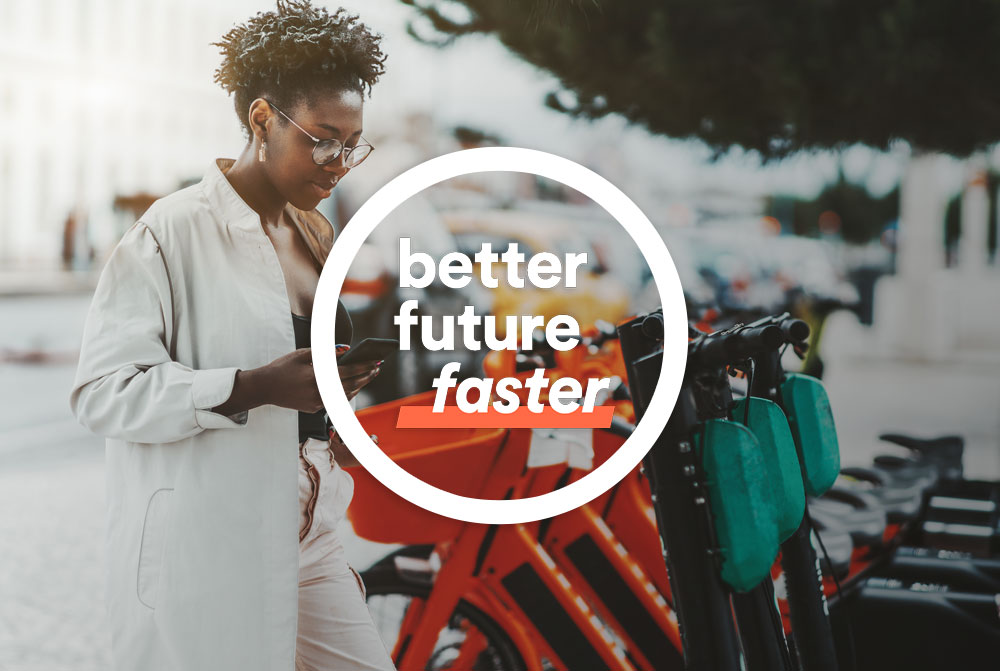Zero-Carbon Transition – Latest signals of change (28.08.20)
The We Mean Business coalition
Here are just some of the signals of change from the past week, demonstrating the transition to a resilient and inclusive zero-carbon future remains underway.
Zero-Carbon Economy
A group of 20 business leaders have joined the call for a green recovery in India, through a joint statement coordinated by The Energy Resources Institute (TERI). The European Union is expected to propose an increase in the region’s pollution reduction target to 55% compared with 1990 levels by 2030. New research shows that the tougher EU target of 55% is technically and economically feasible. Germany has launched its first ‘green’ bond, to raise funds for environmental projects. The UK’s 100 largest pension funds, with assets of more than £5 billion each, will be required to publish climate risk disclosures by the end of 2022 under new regulations. And WBCSD together with the Principles for Responsible Investment (PRI) have forged a new collaboration to create the enabling conditions for a sustainable financial system.
Zero-Carbon Transport
Mercedes-Benz has joined The Climate Pledge, the initiative founded by tech giant Amazon, and Amazon has announced it is adding more than 1,800 electric vehicles (EVs) from Mercedes-Benz Vans to its delivery fleet in Europe this year. British supercar maker McLaren has committed to end its production of internal combustion engine vehicles by 2030 as it switches to full electric. German auto component manufacturer Continental has committed to set a science-based target. EV100 has welcomed three new members committed to accelerating the transition to EVs, including India’s online retailer Flipkart and UK tech retailer Dixons Carphone. California has approved a $437 million project to install nearly 40,000 EV chargers, with Southern California Edison. UK pub chain Green King will roll out EV charging across its 2,700 establishments. And Jaguar Land Rover has developed a process to turn recycled aluminium into new premium cars.
Zero-Carbon Energy
UN Secretary General António Guterres has urged India to stop building coal-fired power stations. Investors have called on South Korea to follow Japan’s lead on curtailing overseas coal funding. Danish wind turbine maker MHI Vestas Offshore Wind has committed to set a science-based target, while Australian power utility AGL Energy has committed to EV100. Exxon Mobil has been removed from the Dow, as investors increasingly differentiate on the carbon intensity of energy-related stocks. Nordic hedge fund Storebrand has divested from Exxon, Chevron and Rio Tinto due to ‘unacceptable’ climate lobbying. And the UK saw its highest ever share of wind energy due to Storm Francis.
Zero-Carbon Built Environment & Heavy Industry
Engineering and architecture group Arup has had its science-based target approved. The cost of producing hydrogen from renewable electricity is forecast to fall by as much as 64% by 2040, according to new research. Walmart revealed it has cut 230 million metric tons of greenhouse gases from its supply chain in the past three years, meaning the world’s largest retailer is on track to achieve its 2030 emissions goal.
Zero-Carbon Land Use and Nature Based Solutions
The UK Government has launched a consultation process on new legislation that would make it illegal for businesses above a certain size to use commodities grown on land which has been deforested illegally. Indonesia has been awarded $104 million from the UN’s Green Climate Fund to help conserve forests. HSBC and Pollination have launched a joint venture to provide investment opportunities in ‘natural capital’. Extinction Rebellion has launched a “sea-faring sister” organization, focusing on ocean-related climate issues. Finnish food packaging company Huhtamaki has committed to set a science-based target. Scientists have developed an ‘artificial leaf‘ and the US has officially joined the One Trillion Trees initiative.

